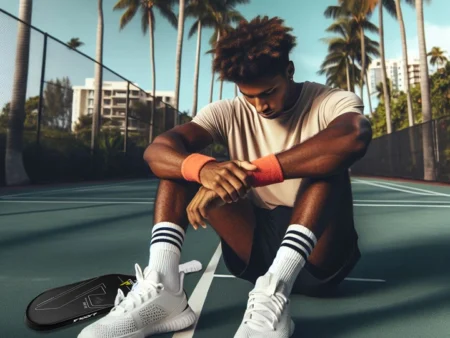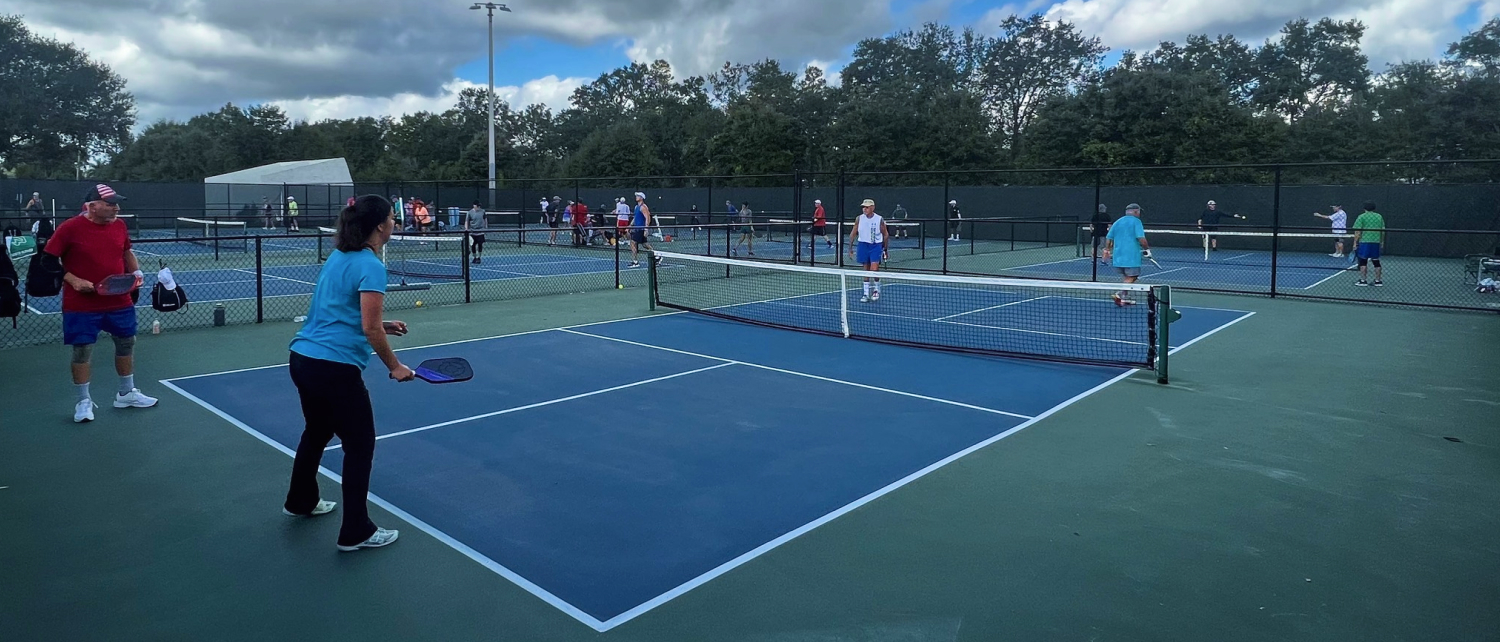Your cart is currently empty!

Pickleball, a sport that ingeniously combines elements of tennis, badminton, and ping-pong, has experienced a meteoric rise in popularity. Originating in the mid-1960s on Bainbridge Island, Washington, it was initially a pastime for children. However, its simplicity and accessibility quickly caught the attention of adults, leading to its widespread appeal. Today, pickleball courts are a common sight in community centers, parks, and recreational facilities across the globe.
Pickleball, skillfully blending aspects of tennis, badminton, and table tennis, has witnessed an extraordinary surge in popularity. It’s not uncommon to see players of all ages and skill levels enjoying the sport. The growth of pickleball can be quantified not just by the increasing number of courts and players but also through its burgeoning presence in sports media and competitive circuits.
Pickleball offers a unique blend of strategic gameplay, physical activity, and social interaction. The joy of the game lies in its fast-paced nature and the camaraderie among players. However, like any sport, pickleball presents challenges, especially to those striving for continual improvement.
Signs You’re Not Improving in Pickleball
Lack of Progress in Skill Level
Improving in pickleball means advancing from basic stroke techniques to more sophisticated plays. Serving accuracy, defensive tactics, and offensive strategies are benchmarks of this progress. Players can self-assess or seek coaching to identify areas of improvement.
Consistent Errors and Misjudgments
Technical errors, like improper footwork or paddle grip, can hinder a player’s progress. These mistakes can become habitual if not corrected. Players should cultivate self-awareness and adopt correction techniques.
Difficulty Adapting to Different Playing Styles
Adaptability is key in pickleball. Opponents may employ a variety of playing styles and strategies. Engaging in diverse training exercises can improve a player’s adaptability.
No Improvement in Game Strategy
Understanding the nuances of shot selection, court positioning, and anticipation is crucial. Watching professional matches can be an excellent way to learn advanced strategies.
Plateau in Scoring and Winning Rates
A plateau in performance can be disheartening. Tracking progress through objective measures and understanding the psychological aspects of a plateau are vital.
Feedback from Fellow Players
Constructive feedback from peers is invaluable. Engaging with a supportive community can foster improvement and provide different perspectives on one’s gameplay.
Lack of Confidence on the Court
Confidence on the court is often a reflection of skill level. Building confidence through small victories and positive reinforcement can enhance performance.
Overcoming the Plateau
Self-Assessment and Goal Setting
Setting realistic and measurable goals is a key aspect of achieving success. It’s important to establish objectives that are specific, observable, and quantifiable. To effectively track your progress, employing tools such as progress journals and video analysis can be extremely beneficial. These tools provide a tangible way to monitor advancements and identify areas for improvement. They also help maintain motivation and focus by providing clear evidence of progress, making it easier to stay committed to your goals.
Analyzing and Learning from Mistakes
Reflecting on gameplay is a crucial strategy for personal and skill development. By analyzing and learning from one’s mistakes, one can significantly enhance their performance and strategic thinking. This reflective practice not only helps in identifying areas of improvement but also fosters a mindset of continual learning and adaptation, which is essential for mastering any game. Such introspection can transform challenges into valuable lessons, paving the way for sustained improvement and success
Diversifying Practice Routines
Incorporating a variety of drills and gameplay scenarios is essential for keeping practice sessions both engaging and effective. By introducing diverse exercises and simulating different match situations, players can develop a wide range of skills and tactics. This approach not only enhances their adaptability on the field but also maintains their interest and motivation, making every practice session more dynamic and productive
Staying Informed About the Sport
Keeping abreast of the latest trends, rules, and techniques in pickleball is crucial for ongoing development. This involves regularly engaging with new strategies, understanding evolving game rules, and mastering advanced techniques. By doing so, players can enhance their skills, adapt to the dynamic nature of the sport, and gain a competitive edge. Staying informed also fosters a deeper appreciation for the game, encouraging both personal growth and community involvement in pickleball.
The Role of Professional Instruction and Lessons
Personalized attention and advanced training are key benefits of professional coaching. Success stories from players who have undergone coaching can be inspiring.
The choice between group and individual coaching depends on a player’s learning style and goals. Both have their unique advantages.
Professional coaching often includes specific drills targeting areas like agility, precision, and strategy.
Regular, structured practice is essential for long-term improvement in pickleball.
Recognizing signs of plateauing and taking proactive steps are critical in the journey of improvement in pickleball. Professional instruction or lessons can be instrumental in breaking through barriers and enhancing one’s game.
Professional instruction or lessons can be instrumental in breaking through barriers and enhancing one’s game. For those seeking expert guidance in pickleball, I&G Pickleball offers pickleball training sessions in Tarpon Springs and Brooksville, Florida, offers top-notch coaching. Their passionate instructors specialize in elevating the skills of both beginners and intermediate players, ensuring a comprehensive approach to mastering the sport.



